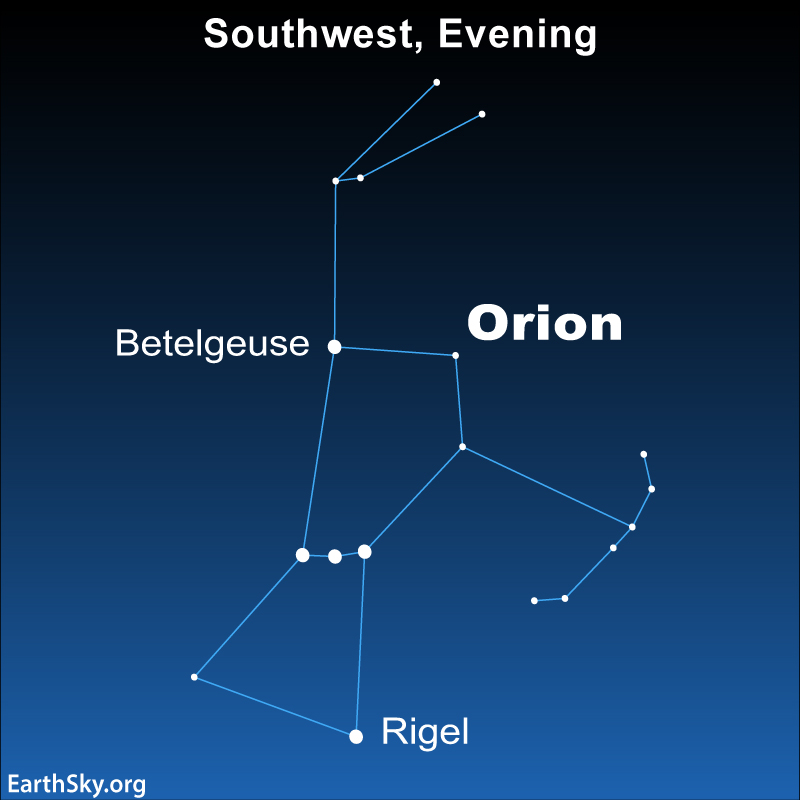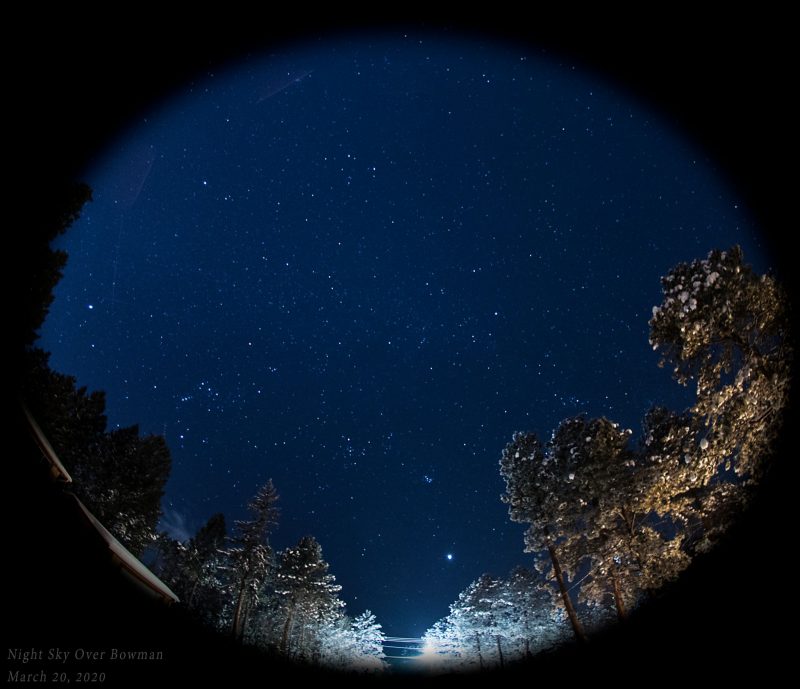
Westward shift of Orion
If you’re out on an evening walk in late March or early April, notice this seasonal aspect of the night sky. The famous constellation Orion the Hunter – an easy-to-spot star pattern in January and February – now seems to have moved and turned considerably. It’s very low in the western part of the sky when the sun goes down.
Orion will soon disappear into the sun’s glare. Orion, like all the stars and constellations, shifts westward as the seasons pass. Unless they’re in the far northern or southern sky – and so circumpolar – all stars and constellations spend some portion of each year hidden in the sun’s glare.
In other words, like blooms on trees or certain flowers or even specific animals in your locale, stars have their own seasons of visibility.
All stars move westward in a single night
All the stars and their constellations also move westward in the course of a single night. Orion is no exception. That motion, though, is due to Earth’s spin.
But the seasonal disappearance of Orion – its sinking into the sunset glare during the northern spring months (southern fall months) – is something else. It’s as if we’re riding on a carousel through space – spinning, yes – but also the entire structure is moving. That is, Earth is moving in orbit around the sun. As we move in orbit, our night sky points out in different directions – toward different parts of the Milky Way galaxy – at different times of year.
Earth’s motion in orbit brings the sun between us and Orion at this same time each year.

When will you see it last?
Exactly when Orion will disappear from your evening sky – into the sunset – depends on your latitude. The farther south you are, the longer you can see Orion. But for the central U.S., Orion is lost in the sun’s glare by early to mid-May (depending on how carefully you look for it).
And for all of us in the U.S., Orion is gone by the time of the summer solstice in June.
If you want to notice the westward shift of the constellations due to the passage of the seasons, be sure to watch at the same time every night. If you want to watch their westward shift throughout the night, just pull up a lawn chair and watch.
Either way, you can easily notice Orion moving steadily westward.

Bottom line: Why the constellation Orion – and all the stars – shift westward as the seasons pass.
EarthSky astronomy kits are perfect for beginners. Order today from the EarthSky store











